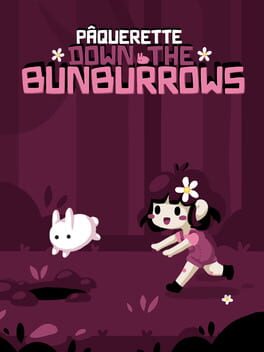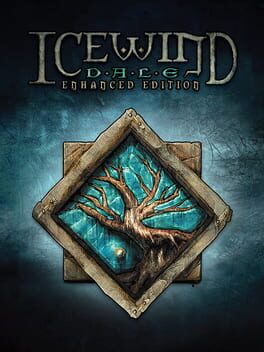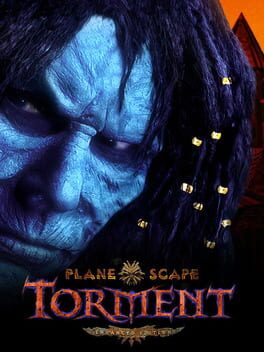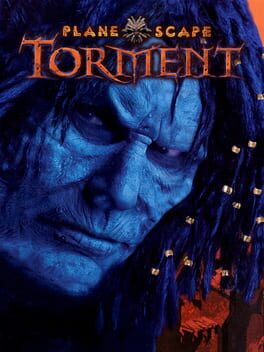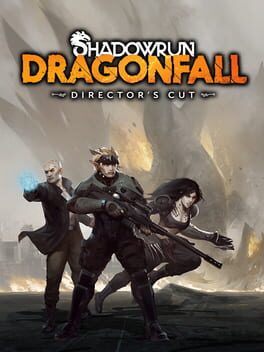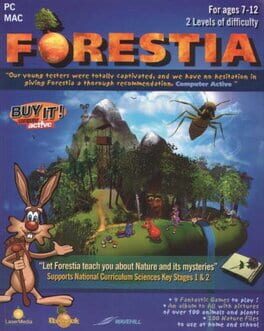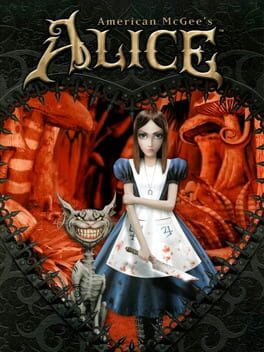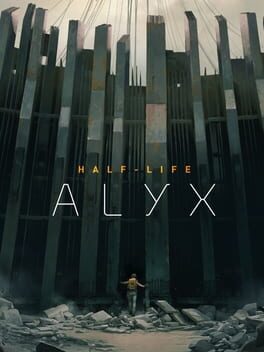6d6f7274686f6e
7 reviews liked by 6d6f7274686f6e
This first official release from Bunstack makes a big statement using a deceptively small package! What starts as a cute little sokoban puzzler about catching bunnies quickly unravels into a surreal, labyrinthian delve into the bizarre lore of the bunburrows in this excellent retro-style brain teaser.
You play as the charming Pâquerette, a rabbit enthusiast accompanied by her aloof friend Ophéline, who wants to catch rabbits! Thus you dive into the burrows and start cornering the buns. Each rabbit follows a simple set of logic when running from you, trying to move in the priority order of away > left > right. From this simple principle the puzzles can be logically deduced, albeit compounded by the tricky level design, winding tunnels the buns can use as shortcuts, and special tools that add a variety of new factors to play with.
The puzzles themselves are very well designed with a steady incline of difficulty that keeps things fresh in every burrow. While I won't spoil anything specific you can rest assured that there is at least 5x more content than at first appears, revealing itself only once you begin experimenting and gradually uncover the secrets of both bun interactions and their burrow. While some secrets may not intuitive, experimentation and perseverance will usually help you find your way (and of course the bustlingly friendly discord group are happy to hint).
This gives the game surprise after surprise after surprise as you naturally begin to realise how x mechanic could have been used earlier, and thus a whole new line of thinking unravels. The inventiveness on display here with secrets within secrets is a genuine treat and serves as a textbook example of what well executed knowledge gates can add to a play experience.
All this presented in beautiful Commodore-style blocky graphics and a top tier chip tune soundtrack by Herbie Puppy. If you enjoy puzzlers this one is well worth picking up, and if all that didn't convince you the low price definitely will!
You play as the charming Pâquerette, a rabbit enthusiast accompanied by her aloof friend Ophéline, who wants to catch rabbits! Thus you dive into the burrows and start cornering the buns. Each rabbit follows a simple set of logic when running from you, trying to move in the priority order of away > left > right. From this simple principle the puzzles can be logically deduced, albeit compounded by the tricky level design, winding tunnels the buns can use as shortcuts, and special tools that add a variety of new factors to play with.
The puzzles themselves are very well designed with a steady incline of difficulty that keeps things fresh in every burrow. While I won't spoil anything specific you can rest assured that there is at least 5x more content than at first appears, revealing itself only once you begin experimenting and gradually uncover the secrets of both bun interactions and their burrow. While some secrets may not intuitive, experimentation and perseverance will usually help you find your way (and of course the bustlingly friendly discord group are happy to hint).
This gives the game surprise after surprise after surprise as you naturally begin to realise how x mechanic could have been used earlier, and thus a whole new line of thinking unravels. The inventiveness on display here with secrets within secrets is a genuine treat and serves as a textbook example of what well executed knowledge gates can add to a play experience.
All this presented in beautiful Commodore-style blocky graphics and a top tier chip tune soundtrack by Herbie Puppy. If you enjoy puzzlers this one is well worth picking up, and if all that didn't convince you the low price definitely will!
Beaten: Aug 10 2021
Time: 20 Hours
Platform: Switch
Well, it's the last of the 2e infinity engine games. This one's core design is something you don't tend to see in western CRPGs much anymore. This is a dungeon-first game, with almost none of the exploration that characterized Baldur's Gate, nor the story heft of Baldur's Gate 2. Honestly, it reminded me most of Planescape Torment.
Now that might be a weird comparison, since Planescape is known for having almost no combat, and Icewind Dale is pretty much combat front to back, but hear me out: Planescape and Icewind are games that compliment each other better than nearly any other set of games. They're distillations of the Infinity Engine's systems into two pillars, storytelling and action. In Icewind Dale's case, the "action" side of things, we have near-pitch-perfect dungeon design, encounter design, and the perfect amount and style of world-building to tie it all together
The dungeons lean more on the side of interesting layouts than maze-like, which is definitely for the best. You feel like you're exploring caverns and decrepit buildings, rather than sweeping back and forth through something that was designed to be disorienting. They can be big and complex when they want to, but for the most part that's not where the interest is. Instead, the encounters are where the focus lies.
The encounters in this game are a thing of beauty. Every time you get into a brawl, it feels very tight and well thought out. Even the bosses are manageable for the most part! When there's a group of enemies, they're fragile enough for an area spell. When there's a tough one, it's beatdown time. When that doesn't work, try some other spells. It's a game that calls you to adapt your strategy over the course of the game, but doesn't seem too interested in frustrating you for not realizing that. You'll be able to tell when you're doing something wrong every time, and more often than not you'll have time to adapt. Granted I was on easy mode, because I'm Bad at these games I love so much lol, so it's safe to say it can be more punishing at higher difficulties if that's what you want.
Those two were largely what I expected. Icewind Dale is known as the combat-heavy Infinity Engine game, and it definitely lives up to that. What I wasn't expecting was the world outside of the dungeons to be so fully realized!!!!
From the small town where the game opens all the way to the last minutes of the game, there's a wealth of characters to talk to, to learn about the game world from. Every place you go feels like it has history, and when you talk to the people there (some of them are even mid-dungeon!!!!) you get to piece together that history. Different cultures tell of long rivalries with others, and the other cultures have their own side of things to learn as well. The way I'm saying it might seem a little basic, and sure it's not as outwardly complex as many rpgs tend to be, but the depth on display here, the texture of the world beneath your feet, it's intoxicating. And in that way only Black Isle (and obsidian lol) know how to do.
I wouldn't start your crpg journey with this game. Hell, even if you've played more modern games, I wouldn't play this before Baldur's Gate. There's not much in the way of a tutorial, and you can and should make your own six-character party when you start. That being said, if you like the other Infinity Engine games but want more content, more rigor, and more of that sweet sweet Black Isle writing, you'd be doing yourself a disservice for skipping this one
Time: 20 Hours
Platform: Switch
Well, it's the last of the 2e infinity engine games. This one's core design is something you don't tend to see in western CRPGs much anymore. This is a dungeon-first game, with almost none of the exploration that characterized Baldur's Gate, nor the story heft of Baldur's Gate 2. Honestly, it reminded me most of Planescape Torment.
Now that might be a weird comparison, since Planescape is known for having almost no combat, and Icewind Dale is pretty much combat front to back, but hear me out: Planescape and Icewind are games that compliment each other better than nearly any other set of games. They're distillations of the Infinity Engine's systems into two pillars, storytelling and action. In Icewind Dale's case, the "action" side of things, we have near-pitch-perfect dungeon design, encounter design, and the perfect amount and style of world-building to tie it all together
The dungeons lean more on the side of interesting layouts than maze-like, which is definitely for the best. You feel like you're exploring caverns and decrepit buildings, rather than sweeping back and forth through something that was designed to be disorienting. They can be big and complex when they want to, but for the most part that's not where the interest is. Instead, the encounters are where the focus lies.
The encounters in this game are a thing of beauty. Every time you get into a brawl, it feels very tight and well thought out. Even the bosses are manageable for the most part! When there's a group of enemies, they're fragile enough for an area spell. When there's a tough one, it's beatdown time. When that doesn't work, try some other spells. It's a game that calls you to adapt your strategy over the course of the game, but doesn't seem too interested in frustrating you for not realizing that. You'll be able to tell when you're doing something wrong every time, and more often than not you'll have time to adapt. Granted I was on easy mode, because I'm Bad at these games I love so much lol, so it's safe to say it can be more punishing at higher difficulties if that's what you want.
Those two were largely what I expected. Icewind Dale is known as the combat-heavy Infinity Engine game, and it definitely lives up to that. What I wasn't expecting was the world outside of the dungeons to be so fully realized!!!!
From the small town where the game opens all the way to the last minutes of the game, there's a wealth of characters to talk to, to learn about the game world from. Every place you go feels like it has history, and when you talk to the people there (some of them are even mid-dungeon!!!!) you get to piece together that history. Different cultures tell of long rivalries with others, and the other cultures have their own side of things to learn as well. The way I'm saying it might seem a little basic, and sure it's not as outwardly complex as many rpgs tend to be, but the depth on display here, the texture of the world beneath your feet, it's intoxicating. And in that way only Black Isle (and obsidian lol) know how to do.
I wouldn't start your crpg journey with this game. Hell, even if you've played more modern games, I wouldn't play this before Baldur's Gate. There's not much in the way of a tutorial, and you can and should make your own six-character party when you start. That being said, if you like the other Infinity Engine games but want more content, more rigor, and more of that sweet sweet Black Isle writing, you'd be doing yourself a disservice for skipping this one
One of my all-time favorite games. Planescape's writing is often touted as a highlight of RPGs and video games in general, and I generally agree with that. It's reputation for having mediocre/boring at best combat is also, unfortunately, appropriate.
Planescape's world is inherently intriguing, with it's rusty gothic architecture, strange creatures, and multi-dimensional portals. It becomes the "almost sci-fi" D&D setting, and thanks to its relationship to the Forgotten Realms the setting stands out as more bizarre next to the more standard high-fantasy worlds. It is still, of course, high-fantasy, but it is more Elric of Melniboné than, say, Lord of the Rings.
The writing's focus on introspection of the Nameless One, naturally leads to introspection of the player if it manages to grab you. While it is more on the level of a "Philosophy 101" class, that is still more impressive and interesting than the majority of video games. Of course some parts of the game's writing are as shallow as any other RPG, but the highs still stick out enough to warrant the game's reputation. The writing's great strength is that it effectively uses ambiguity to allow the player to imprint themselves and their own feelings into the narrative.
Sadly, the combat is just sort of "there". Encounters are rarely interesting, with so many enemies just doing melee and ranged attacks against the player. There is no shame in just cranking the game to the easiest difficulty or walking past enemies when possible.
I love the game and it's writing. For me personally, the strong introspective and melancholy writing is enough to warrant 5/5. However, my objectivity says that the slog of combat is an undeniable detractor.
Planescape's world is inherently intriguing, with it's rusty gothic architecture, strange creatures, and multi-dimensional portals. It becomes the "almost sci-fi" D&D setting, and thanks to its relationship to the Forgotten Realms the setting stands out as more bizarre next to the more standard high-fantasy worlds. It is still, of course, high-fantasy, but it is more Elric of Melniboné than, say, Lord of the Rings.
The writing's focus on introspection of the Nameless One, naturally leads to introspection of the player if it manages to grab you. While it is more on the level of a "Philosophy 101" class, that is still more impressive and interesting than the majority of video games. Of course some parts of the game's writing are as shallow as any other RPG, but the highs still stick out enough to warrant the game's reputation. The writing's great strength is that it effectively uses ambiguity to allow the player to imprint themselves and their own feelings into the narrative.
Sadly, the combat is just sort of "there". Encounters are rarely interesting, with so many enemies just doing melee and ranged attacks against the player. There is no shame in just cranking the game to the easiest difficulty or walking past enemies when possible.
I love the game and it's writing. For me personally, the strong introspective and melancholy writing is enough to warrant 5/5. However, my objectivity says that the slog of combat is an undeniable detractor.
Planescape: Torment
1999
Shadowrun Returns was a very competent taste of the very potent Shadowrun universe, but Dragonfall is something else, at least when it comes to story. It's on the shorter side (even if it's considerably longer than the original), but considering the focuse on a single team of shadowrunners, it makes sense.
It's the narrative that really shines here--the main story has gripping pace especially towards the latter half, constantly throwing scenarios that are inspired by existing cyberpunk tropes, but with unique twists that only Shadowrun can offer. There is nothing like this, and the writing is absolutely top-tier to make the best of it. There are no voice work in this game, sadly, but the dialogues are written so vividly that it's not hard to imagine the voices. Each team member is given a great care in building their personality through their dialogues, and dialogue options to talk out of sticky situations never feel tacked on and provide organic narrative flow.
I just don't like the combat though, which was the same case with the predecessor. It's X-COM, but with a lot of moving parts with RPG mechanics, magic, hacking, summons, etc. and they are tutorialized very, very poorly. There is that inherent divisive mechanic of "you will miss A LOT" but the way to compensate that disadvantage is buried deep in the pile of smaller mechanics that the game does not do a good job (or any job, for that matter) introducing to the players. The hacking portion being a blend copy and paste of the main combat system, just in a different environment, also doesn't help.
If you really want to just engage with the story, which I highly recommend, the debug menu is easy to access.
It's the narrative that really shines here--the main story has gripping pace especially towards the latter half, constantly throwing scenarios that are inspired by existing cyberpunk tropes, but with unique twists that only Shadowrun can offer. There is nothing like this, and the writing is absolutely top-tier to make the best of it. There are no voice work in this game, sadly, but the dialogues are written so vividly that it's not hard to imagine the voices. Each team member is given a great care in building their personality through their dialogues, and dialogue options to talk out of sticky situations never feel tacked on and provide organic narrative flow.
I just don't like the combat though, which was the same case with the predecessor. It's X-COM, but with a lot of moving parts with RPG mechanics, magic, hacking, summons, etc. and they are tutorialized very, very poorly. There is that inherent divisive mechanic of "you will miss A LOT" but the way to compensate that disadvantage is buried deep in the pile of smaller mechanics that the game does not do a good job (or any job, for that matter) introducing to the players. The hacking portion being a blend copy and paste of the main combat system, just in a different environment, also doesn't help.
If you really want to just engage with the story, which I highly recommend, the debug menu is easy to access.
It's genuinely impressive how bad the platforming feels, like perfectly engineered to feel totally wrong. The jump arc looks off, the momentum feels weightless, the animation is stiff, it all congeals into something that sucks so bad to do it makes the Dark Souls O-button throttling jump seem great.
You don't play this for the gameplay though, this is about atmosphere and art direction, which are masterful. Genuinely brilliant. Plus an incredible Chris Vrenna OST with vocals by Jessicka of JOJ, this is a goth teenager's dream game, and as someone who listened to a lot of Sisters of Mercy in high school I would know.
You don't play this for the gameplay though, this is about atmosphere and art direction, which are masterful. Genuinely brilliant. Plus an incredible Chris Vrenna OST with vocals by Jessicka of JOJ, this is a goth teenager's dream game, and as someone who listened to a lot of Sisters of Mercy in high school I would know.
